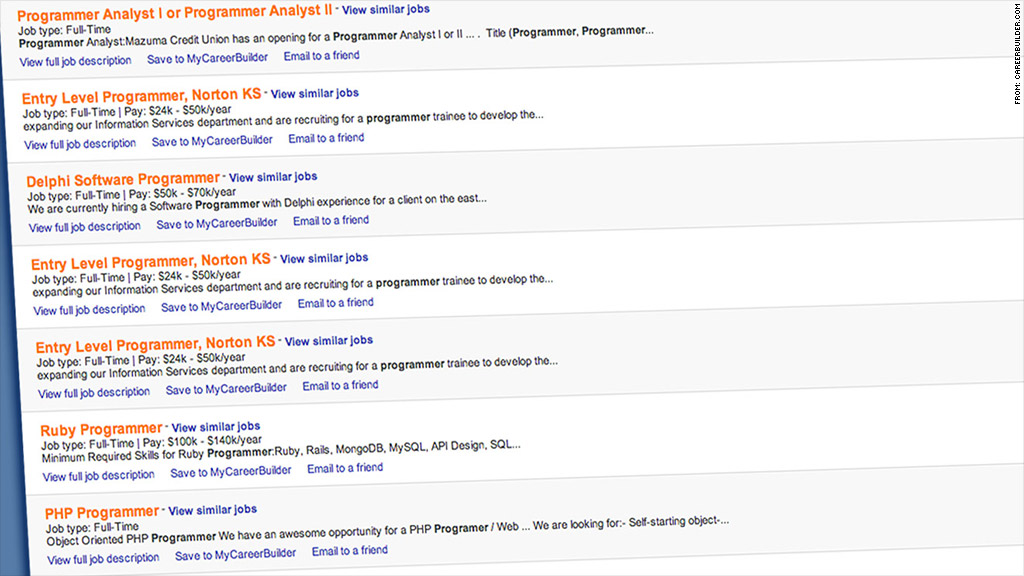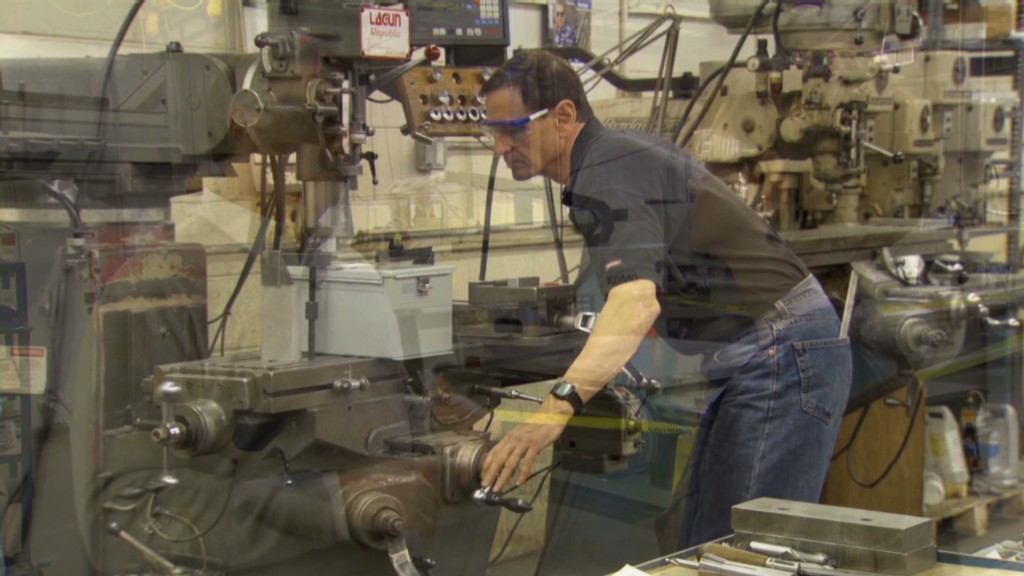
A handful of colleges think they've found the secret to closing the gap between the types of graduates they're turning out and the types of workers employers are looking for: spiders.
Not the hairy, creepy kind, but rather artificial-intelligence spiders that crawl through search engines and read thousands of online "help wanted" ads to check on the job market in real time -- instead of two years after the fact, which is how long the federal government can take to report on labor trends.
The technology is helping colleges and universities quickly add and update academic programs so their graduates can land real-world jobs. And, at the same time, eliminate programs that leave students in debt with skills employers don't want.
So far the use of the technology is limited, but it's likely to increase as colleges and universities face growing pressure to help drive economic recovery and justify the cost of higher education.
"It's not just good enough anymore to educate a student," said Elaine Gaertner, director of the California community-college system's Economic and Workforce Development Centers of Excellence, which use spidering technology. "You have to educate him with a purpose."
That's often hard to do when a college is relying on federal labor data, which can be years out of date.
"It's like looking in the rearview mirror," said John Dorrer, a program director at Boston-based advocacy group, Jobs for the Future. "We're training people for jobs that don't exist, and not training people for jobs that do."
Related: Manufacturing jobs boom is for real
Employers say that's why, in a time of persistent unemployment -- only two-thirds of recent graduates were employed six months after graduation -- there are 3.6 million jobs sitting empty nationwide.
The National Association of Manufacturers estimates that 600,000 manufacturing jobs remain unfilled because companies can't find skilled applicants. And 93% of IT employers say they're having trouble attracting qualified employees, according to the Computing Technology Industry Association.
Yet 72% of educators believe they're doing a good job of preparing students for the workforce, while only 45% of graduates and 42% of employers think so, a McKinsey & Co. survey found.
That disconnect could soon change. Universities where graduates are having trouble getting jobs risk losing business, while those that are nimble and responsive stand to gain, said Matthew Sigelman, CEO of Burning Glass Technologies, which provides spidering services to colleges.
"Schools that can make sure their graduates do well are seeing a meteoric rise in their standing," he said.

One of those is Boston's Northeastern University, which employs an "experiential learning" approach that requires undergraduates to work in real-world settings for up to 18 months. More than half go on to full-time jobs in those places, and more than 90% are employed or in graduate school within nine months of earning their degrees.
Northeastern has also been using spidering technology for more than three years as it expands to satellite campuses in Seattle and Charlotte N.C., where real-time "help wanted" listings have revealed high demand for workers with training in finance, taxation, and project management (Charlotte) and science and technology (Seattle), but a dearth of qualified workers.
Related: How does your community college stack up?
At its Boston campus, Northeastern has been mining data to find out who is hiring and for what jobs, then seeking out the top employers to find out what type of graduates they need, said Sean Gallagher, senior strategist and market-development officer.
Like most other schools, Northeastern previously used state and federal government labor data. "The inflection point, from my perspective, was the economic downturn in 2008. After that, you could see that these forecasts were entirely out of date," said Gallagher.
The intense focus on preparing students for the workplace has driven a 46% increase in applications to Northeastern over the last five years.
Based on real-time labor-market information, the Lone Star College System in Houston will close three programs next fall, in aviation management, hospitality management and computer support.
The community college found that employers prefer four-year to two-year degrees in the first two cases, and were outsourcing work in the third in order to lower labor costs. But the school is adding programs to train oil and gas drillers and CT-scan technicians, for which there is burgeoning demand.
Cabrillo College near Santa Cruz, Calif. thought its program in medical assisting was doing well -- until spidering technology showed there wasn't much hiring going on and a survey of recent graduates confirmed that fewer than 30% had found jobs in the field.
Related: Jobs recovery favors highly-skilled workers
So the college raised the program's standards to a level employers needed, making it more rigorous and adding further instruction in English-language skills and math.
"We didn't pay a great deal of attention to this data while the economy was growing and unemployment was low -- but when the recession began, it became clear that we could no longer assume that program completion would result in employment," said Rock Pfotenhauer, a dean at Cabrillo.
Employers' demands have shifted so quickly that Archana Mani found her master's degree in information systems, which she earned in 2001, insufficient to get a job after she took a break to raise her children.
So she enrolled at Oakland Community College near Detroit, which had discovered through spidering technology an urgent need for programmers who could build and test new software applications.
"I can see that demand, now that I'm at work," said Mani, who completed the program and got a position with a quickly expanding branch of Hewlett-Packard in Pontiac, Mich. "They are looking to fill a lot of jobs."
This story -- one in a series about workforce development and higher education -- was produced by The Hechinger Report, a nonprofit, nonpartisan education-news outlet based at Teachers College, Columbia University.
